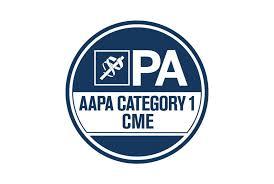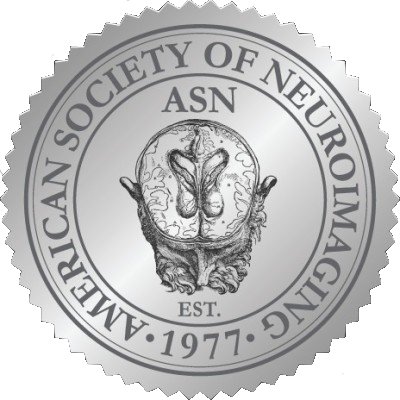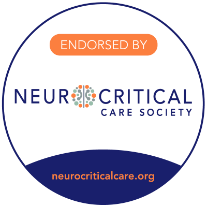Overview
The Department of Neurology offers neuroultrasound courses with transcranial Doppler and carotid ultrasound applications in various settings.
Current symposia and courses
Neurovascular Ultrasound (Carotid and TCD)
At a Glance
Registrations are now closed. Please check back next month when registrations open for the course running September 14 -20.
- Date: Feb. 16-22, 2026
- Location: Virginia Commonwealth University, Sanger Hall, 1101 E. Marshall Street, Richmond, VA 23298
- Lodging
- The Commonwealth, 901 Bank St. (6 minute walk)
- Phone: 804-343-7300
- Courtyard by Marriott, 1320 East Cary St. (11 minute walk)
- 804-754-0007
- Hilton Richmond Downtown, 1501 E. Broad St. (12 minute walk)
- Phone: 804-344-4300
- Omni Richmond, 100 S. 12th Street (11 minute walk)
- Phone: 804-344-7000
- The Commonwealth, 901 Bank St. (6 minute walk)
- CME credits: 40
- Cost:
- Physicians: $2200
- PA/APP: $1760
- Trainees: $1100
Registration note
Full Course (TCD and Carotid)
- Monday–Thursday: Didactic sessions
- Saturday & Sunday: Hands-on sessions
TCD-Only Course
- Monday–Tuesday: Didactic sessions
- Saturday: Hands-on session
Hands-on sessions on Saturday and Sunday are available only for participants who complete the didactic sessions.
Payment for this course will be accepted by credit card only.
Overview
The Neurovascular Ultrasound (Carotid and TCD) Course provides a structured introduction to the principles and applications of neurovascular ultrasound, serving as a preparatory program for the advanced Neurovascular Ultrasound Interpretation (Carotid and TCD) course.
Designed for clinicians with limited or no prior experience in ultrasound, this course emphasizes evidence-based practice and clinical integration.
Over the span of one week, participants will engage in a blended learning format that combines virtual didactic instruction with in-person, hands-on training. The first four days consist of interactive online sessions—two days dedicated to Transcranial Doppler (TCD) and two days focused on Carotid Duplex Sonography—followed by a travel day and immersive weekend workshops. Core competencies include B-mode scanning, color-flow imaging, duplex imaging, and pulse wave Doppler, all taught by expert faculty with extensive clinical experience.
This program supports preparation for RPNI and NVS certification examinations and provides a comprehensive foundation for incorporating neurovascular ultrasound into clinical practice.
NOTE: No prior ultrasound experience is required, although familiarity with cerebrovascular care is advantageous.
Objectives
At the conclusion of this course, the participant should be better able to:
- Discuss key principles of ultrasound physics, technology and anatomy as applied to neurovascular testing.
- Describe hemodynamics and pathophysiology of the cerebral circulation, and alterations relevant to patients with stroke, cerebrovascular disease (including sickle cell disease [SCD]), vasospasm and traumatic brain injury (TBI).
- List clinical indications for neurovascular testing, particularly as related to patients with stroke, cerebrovascular disease, SCD, vasospasm and TBI.
- Discuss the integrated role for neurovascular ultrasound in the management of patients with stroke, cerebrovascular disease, vasospasm and TBI and potential benefits to improve patient safety and outcomes.
- Discuss criteria for interpretation of neurovascular ultrasound studies.
- Describe key aspects of ongoing quality improvement in a neurovascular service.
- Demonstrate the hands-on ability to successfully identify pathology within key arterial segments in the extracranial circulation (CCA, BIF, ICA, ECA, VA) and to obtain Doppler velocity measurements from those segments.
- Demonstrate the hands-on ability to identify key intracranial arterial segments using TCD (MCA, ACA, PCA, VA, BA) and to obtain Doppler velocity measurements from those segments.
Schedule
- Day 1-2 (Monday-Tuesday): Virtual TCD didactics
- Day 3-4 (Wednesday-Thursday): Virtual Carotid didactics
- Day 5 (Friday): Travel day for attendees taking hands on classes on day 6/7
- Day 6 (Saturday): On-site TCD scanning labs with patient models
- Day 7 (Sunday): On-site Carotid scanning labs with patient models
Register
Registrations are now closed. Please check back next month when registrations open for the course running September 14 -20.
Upcoming symposia and courses
More information to come.
- May 4-10, 2026
- Registration link coming soon
- 40 hours CME credit
- Virtual online only
- September 14-20, 2026
- Registration link coming soon
- 40 hours CME credit
- Virtual didactics and hands on in-person
The Neurovascular Ultrasound courses provide an in-depth exploration of the anatomy, pathophysiology, and hemodynamics of extracranial and intracranial cerebral circulation.
Participants will gain expertise in various clinical applications of transcranial Doppler (TCD) and carotid duplex sonography on evaluation and management of cerebrovascular disease covering B mode scans, color-flow imaging, duplex imaging and pulse wave Doppler measurements. Evidence based review of techniques and interpretations will be taught through virtual lectures and in person hands-on stations in an interactive format.
This is a comprehensive one-week course that will be virtual online didactics for the first four days with in person hands-on component in the last two days of the week. The first two days of the course focus on transcranial Doppler and the second two days focus on carotid ultrasound. A travel day is built into the 5th day within person hands-on labs on the weekend. The course will be useful for attendees intending to integrate TCD and carotid ultrasound into their clinical practice and allows 40 hours of CME credit and clinical knowledge to take the RPNI and NVS exam. This course provides the foundation knowledge of TCD and carotid ultrasound for attendees with no to minimal experience in using these modalities.
Prerequisites: This course is meant for basic training in neurovascular ultrasound. No prior ultrasound knowledge is required. Prior knowledge of cerebrovascular care is useful but not necessary.
Schedule:
- Day 1-2 (Monday-Tuesday): Virtual TCD didactics
- Day 3-4 (Wednesday-Thursday): Virtual Carotid didactics
- Day 5 (Friday): Travel day for attendees taking hands on classes on day 6/7
- Day 6 (Saturday): On-site TCD scanning labs with patient models
- Day 7 (Sunday): On-site Carotid scanning labs with patient models
This course serves as a preamble to the Neurovascular Ultrasound Interpretation (Carotid and TCD) course.
Objectives
At the conclusion of this course, the participant should be better able to:
- Discuss key principles of ultrasound physics, technology and anatomy as applied to neurovascular testing.
- Describe hemodynamics and pathophysiology of the cerebral circulation, and alterations relevant to patients with stroke, cerebrovascular disease (including sickle cell disease [SCD]), vasospasm and traumatic brain injury (TBI).
- List clinical indications for neurovascular testing, particularly as related to patients with stroke, cerebrovascular disease, SCD, vasospasm and TBI.
- Discuss the integrated role for neurovascular ultrasound in the management of patients with stroke, cerebrovascular disease, vasospasm and TBI and potential benefits to improve patient safety and outcomes.
- Discuss criteria for interpretation of neurovascular ultrasound studies.
- Describe key aspects of ongoing quality improvement in a neurovascular service.
- Demonstrate the hands-on ability to successfully identify pathology within key arterial segments in the extracranial circulation (CCA, BIF, ICA, ECA, VA) and to obtain Doppler velocity measurements from those segments.
- Demonstrate the hands-on ability to identify key intracranial arterial segments using TCD (MCA, ACA, PCA, VA, BA) and to obtain Doppler velocity measurements from those segments.
- December 7-13, 2026
- Registration link coming soon
- 40 hours CME credit
- Virtual online only
The Neurovascular Ultrasound Interpretation course is designed for attendees to interpret at least 200 neurovascular ultrasound cases (100 carotid and 100 TCD studies) in a supervised environment. This live activity is delivered virtually. While full-week attendance is encouraged, participants have the flexibility to choose specific days based on their area of focus. Monday, Tuesday and Wednesday covers TCD interpretation while Thursday and Friday is specific to Carotid interpretation.
Cases will be presented using video and electronic images, from which attendees will create a preliminary interpretation. The findings will be discussed, and when possible, compared with the clinical reading. Some unknown cases will be reviewed and submitted for critique.
Prerequisites: Prior completion of the Neurovascular Ultrasound course (or its equivalent) including hands-on and practical interpretation experience is strongly encouraged. Basics of Neurovascular ultrasound (carotid and TCD) interpretation and clinical interpretation are covered in our Neurovascular Ultrasound course and will only be repeated in relevant to the case-based review. Attendees with no prior ultrasound knowledge or experience who need the basics of ultrasound interpretation and clinical interpretation should seek education in basics and clinical indications before this course. Neurovascular Ultrasound (Carotid and TCD) serves as a preamble to this course.
Objectives
At the conclusion of this course, the participant should be better able to:
- Describe criteria for the interpretation of carotid duplex ultrasound studies.
- Describe criteria for the interpretation of transcranial Doppler ultrasound studies.
- Demonstrate the ability to identify normal, compared to pathological findings in the extracranial (CCA, BIF, ICA, ECA and VA) and the intracranial circulation (MCA, ACA, PCA, VA and BA).
- Formulate preliminary interpretations of carotid and transcranial ultrasound examinations.
- List clinical indications for neurovascular testing, particularly as related to patients with stroke or cerebrovascular disease.
- Discuss the integrated role for neurovascular ultrasound in the management of patients with stroke or cerebrovascular disease, and potential benefits to improve patient safety and outcomes.
Accreditation Information

Jointly provided by Partners for Advancing Clinical Education and Virginia Commonwealth University
Target Audience
This activity is intended for physicians, physician assistants/physician associates, registered nurses, nurse practitioners, sonographers, and other healthcare practitioners that need to deepen their understanding of the anatomy, pathophysiology, and hemodynamics of both extracranial and intracranial cerebral circulation.
Faculty
Aarti Sarwal, MD, FAAN, FNCS, FCCM, RPNI
Professor, Neurology
Division Chair, Neurocritical Care
Virginia Commonwealth University School of Medicine
Associate Editor, Critical Care Medicine
Editor-in-Chief, Clinical Neuroimaging
Secretary, American Society of Neuroimaging
Director, VCU-Wake Forest NeuroUltrasound Courses
Disclosure of Conflicts of Interest
Partners for Advancing Clinical Education (Partners) requires every individual in a position to control educational content to disclose all financial relationships with ineligible companies that have occurred within the past 24 months. Ineligible companies are organizations whose primary business is producing, marketing, selling, re-selling, or distributing healthcare products used by or on patients. All relevant financial relationships are mitigated according to Partners policies.
Americans with Disabilities Act
Event staff will be glad to assist you with any special needs (i.e., physical, dietary, etc). Please contact Briana Garnett prior to the live event at Briana.Garnette@vcuhealth.org
Joint Accreditation Statement
 |
In support of improving patient care, this activity has been planned and implemented by Partners for Advancing Clinical Education (Partners) and Virginia Commonwealth University. Partners is jointly accredited by the Accreditation Council for Continuing Medical Education (ACCME), the Accreditation Council for Pharmacy Education (ACPE), and the American Nurses Credentialing Center (ANCC), to provide continuing education for the healthcare team. |
Physician Continuing Education
Partners designates this live for a maximum of 28 for Neurovascular Ultrasound Course; 12 for Live In-Person Hands-on Training; AMA PRA Category 1 Credit(s)™. Physicians should claim only the credit commensurate with the extent of their participation in the activity.
Nursing Continuing Professional Development
The maximum number of hours awarded for this Nursing Continuing Professional Development activity is 28 for Neurovascular Ultrasound Course; 12 for Live In-Person Hands-on Training contact hours.
PA Continuing Medical Education
 |
Partners has been authorized by the American Academy of PAs (AAPA) to award AAPA Category 1 CME credit for activities planned in accordance with AAPA CME Criteria. This activity is designated for 28 for Neurovascular Ultrasound Court; 12 for Live In-Person Hands-on Training APA Category 1 CME credits. PAs should only claim credit commensurate with the extent of their participation. |
Archive
NOTE: A recording of the symposium will be posted soon.
Innovations in neuro-ultrasound span multiple domains, including image acquisition, analysis, education, and clinical application. Each session of this symposium will showcase unique opportunities and new innovation to advance the field.
- January 9, 2026 from 8 - 11 a.m. EST
- Complimentary registration. No CME.
- December 8-12, 2025
- 40 hours CME credit
- Virtual online only
The Neurovascular Ultrasound Interpretation course is designed for attendees to interpret at least 200 neurovascular ultrasound cases (100 carotid and 100 TCD studies) in a supervised environment. This live activity is delivered virtually. While full-week attendance is encouraged, participants have the flexibility to choose specific days based on their area of focus. Monday, Tuesday and Wednesday covers TCD interpretation while Thursday and Friday is specific to Carotid interpretation.
Cases will be presented using video and electronic images, from which attendees will create a preliminary interpretation. The findings will be discussed, and when possible, compared with the clinical reading. Some unknown cases will be reviewed and submitted for critique.
Prerequisites: Prior completion of the Neurovascular Ultrasound course (or its equivalent) including hands-on and practical interpretation experience is strongly encouraged. Basics of Neurovascular ultrasound (carotid and TCD) interpretation and clinical interpretation are covered in our Neurovascular Ultrasound course and will only be repeated in relevant to the case-based review. Attendees with no prior ultrasound knowledge or experience who need the basics of ultrasound interpretation and clinical interpretation should seek education in basics and clinical indications before this course. Neurovascular Ultrasound (Carotid and TCD) serves as a preamble to this course.
Objectives
At the conclusion of this course, the participant should be better able to:
- Describe criteria for the interpretation of carotid duplex ultrasound studies.
- Describe criteria for the interpretation of transcranial Doppler ultrasound studies.
- Demonstrate the ability to identify normal, compared to pathological findings in the extracranial (CCA, BIF, ICA, ECA and VA) and the intracranial circulation (MCA, ACA, PCA, VA and BA).
- Formulate preliminary interpretations of carotid and transcranial ultrasound examinations.
- List clinical indications for neurovascular testing, particularly as related to patients with stroke or cerebrovascular disease.
- Discuss the integrated role for neurovascular ultrasound in the management of patients with stroke or cerebrovascular disease, and potential benefits to improve patient safety and outcomes.
May 30, 2025 8 AM-11AM EST
View the recording here. Enter 84756133 to access the recording.
Contacts
Course Director: Aarti Sarwal, M.D., FAAN, FNCS, FCCM, RPNI
Email: aarti.sarwal@vcuhealth.org
Division Administrator: LaTonya Jones-Odafe, MHA, CPS
Join our listserv/mailing list to receive news and notifications about education and research opportunities related to neuroultrasound. Signup link: https://forms.office.com/r/9a9baSuvmc
Learn more
Watch and subscribe to Dr. Sarwal’s YouTube channel.

